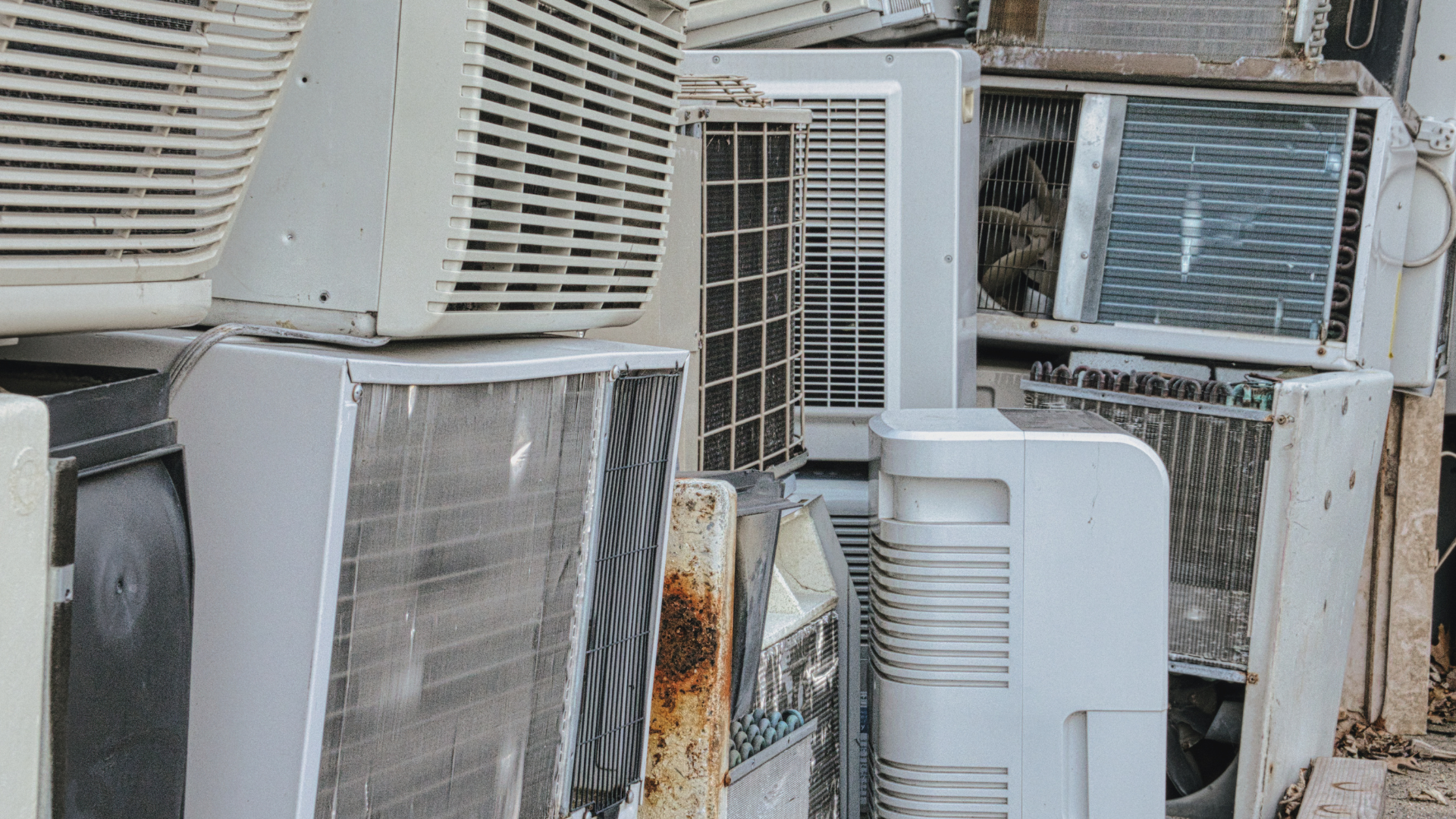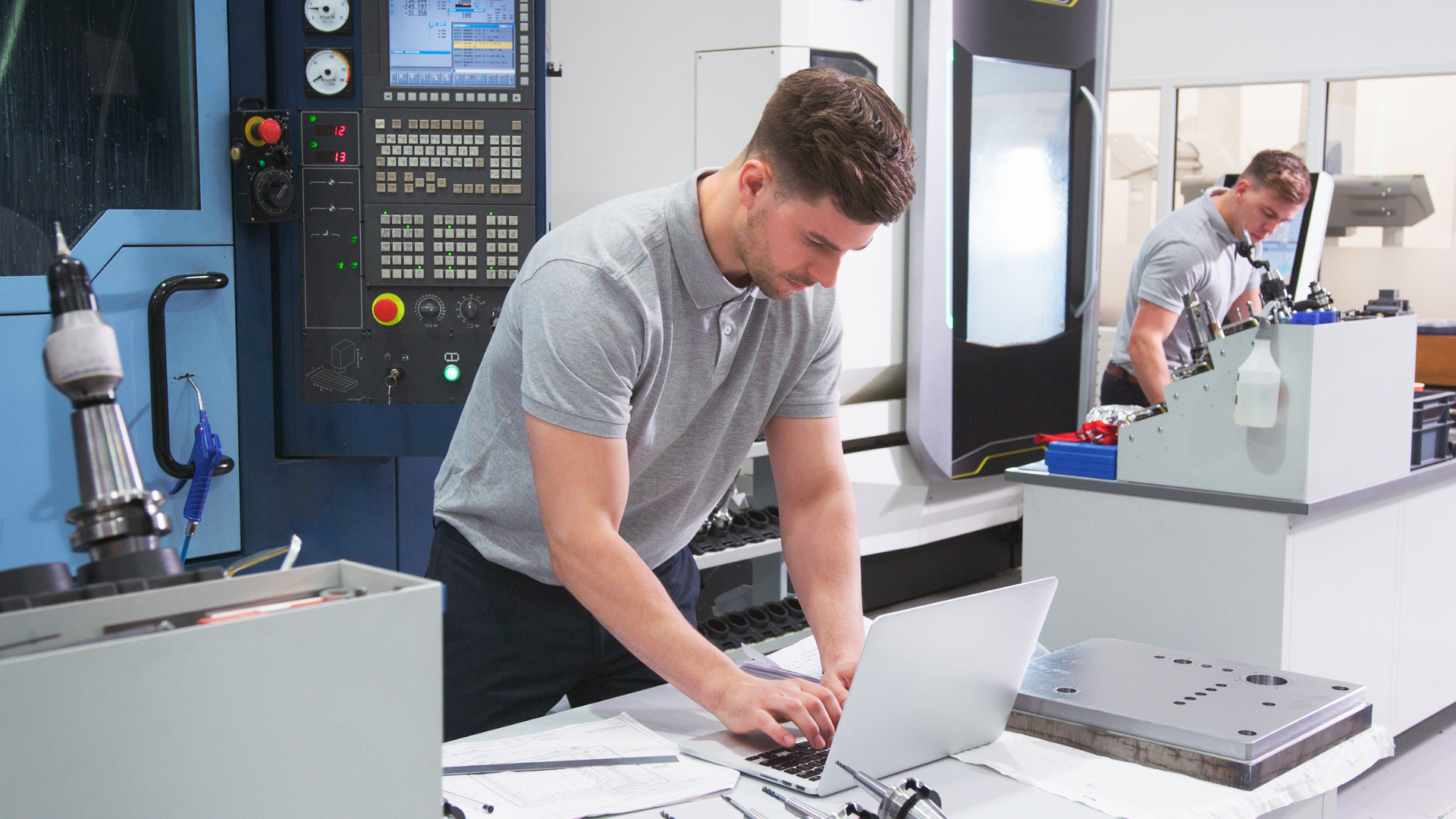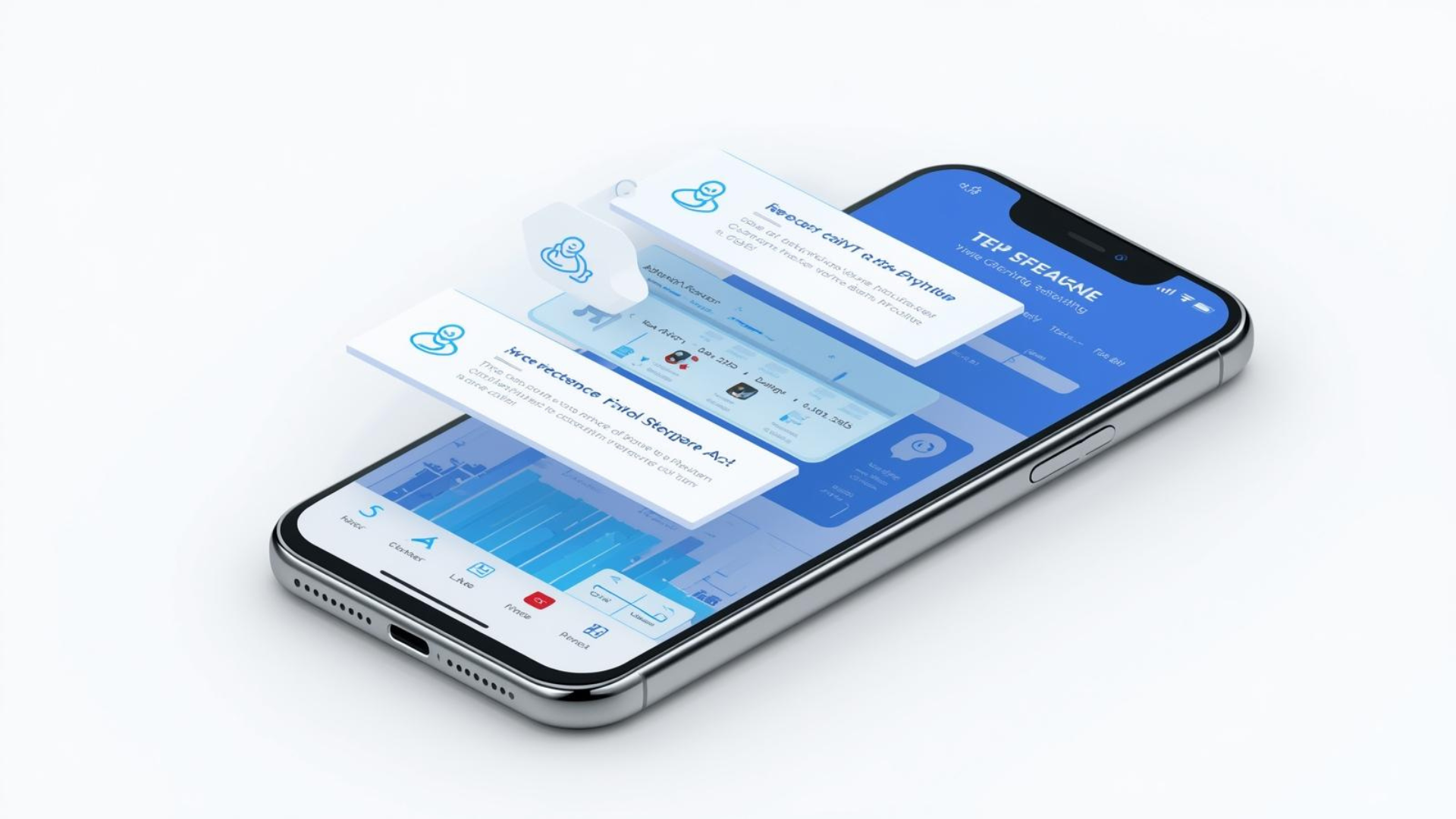Smart HVAC Scheduling: Using AI to Predict Service Needs
Running an HVAC business often feels like playing whack-a-mole. One minute, everything is running smoothly, and the next, a sudden breakdown throws your schedule into chaos. Smart HVAC scheduling changes that.
By using AI to predict service needs, you can anticipate issues before they become emergencies, optimize technician routes, and ensure both your customers and your team are satisfied.
This approach transforms reactive maintenance into a proactive strategy, reducing downtime, cutting unnecessary costs, and ensuring HVAC systems operate at peak efficiency.
The Smart Scheduler: How Predictive Maintenance HVAC Tools Transform Service
If you’ve ever run an HVAC business, you know the drill. One moment, everything’s fine, and the next, a customer calls in a panic because their AC has failed in a heatwave or their furnace has broken on the coldest night of the year. For most contractors, this reactive routine defines the job. Technicians spend their days rushing from one emergency repair to another, leaving little time for planned maintenance or proactive care.
But what if those breakdowns could be predicted before they happen? What if your team knew which systems were at risk, could schedule preventive service ahead of time, and avoid costly repairs altogether? That’s the promise of predictive HVAC maintenance.
Utilizing real-time monitoring, sensor data, and machine learning enables systems to run at peak performance, reduces downtime, and enhances customer satisfaction. Platforms like HVACBase make it easy to turn these insights into actionable schedules, so every technician knows exactly where to go and what to do.
Key Takeaways
- Predictive maintenance is a game-changer for HVAC service providers, shifting operations from a reactive to a proactive approach.
- AI-powered scheduling allows HVAC contractors to anticipate maintenance needs, optimize technician routes, and prevent costly downtime.
- The practical benefits include happier customers, reduced emergency repairs, improved equipment performance, and higher profit margins.
- HVACBase enables predictive scheduling, providing real-time data, maintenance alerts, and route optimization for HVAC teams.
Why HVAC Businesses Struggle with Reactive Scheduling

Running HVAC operations reactively may feel normal, but it often leaves businesses stuck in a cycle of emergency responses.
The outcome of this is overworked technicians, rising costs, and frustrated customers who expect more reliable service.
The Traditional Service Model
Most HVAC contractors operate in a reactive maintenance mode, waiting for clients to call when a problem arises. Although this may seem like the norm, it has significant consequences.
Technicians juggle emergency repairs with regular maintenance, often leading to a chaotic workday. This reactive approach increases stress for staff, reduces operational efficiency, and can impact air quality when HVAC systems are left unchecked.
For instance, a commercial building with multiple HVAC units requires attention. If technicians only respond to failures, maintenance tasks accumulate, systems experience unnecessary downtime, and energy consumption increases due to poorly operating HVAC equipment.
The Cost of Downtime
Unplanned downtime is one of the most expensive problems in HVAC management. Emergency repairs not only disrupt operations but also drive up repair costs and can damage your business’s reputation.
When HVAC systems fail unexpectedly, customers experience poor air quality, inconsistent air conditioning, and higher energy bills. Facility managers face a particular challenge: coordinating emergency repairs across multiple sites, managing maintenance schedules, and tracking system performance without clear data.
Reactive maintenance simply cannot compete with a proactive approach that reduces downtime, lowers unnecessary costs, and optimizes HVAC system operation.
How Predictive Maintenance Transforms HVAC Scheduling

Reactive scheduling may keep things running, but it often leads to chaos, downtime, and unhappy customers.
Predictive maintenance changes the game by utilizing data and smart technology to anticipate problems before they occur, ensuring your operations run smoothly and your clients remain satisfied.
What Is Predictive Maintenance in HVAC?
Predictive HVAC maintenance uses advanced diagnostics, IoT sensors, and historical performance data to anticipate failures before they occur.
This approach is a game-changer because it moves businesses away from reactive maintenance and toward a proactive approach that supports the entire HVAC system.
Sensor data, vibration analysis, and real-time monitoring allow HVAC contractors to identify patterns in equipment performance. Predictive maintenance technology enables the scheduling of maintenance tasks at optimal times, thereby preventing costly emergency repairs, extending equipment lifespan, and reducing system downtime.
AI-Powered Scheduling in Action
For instance, if software detects unusual vibration patterns in a rooftop air conditioning unit. Instead of waiting for a breakdown, the system flags it for preventive maintenance.
Predictive HVAC maintenance enables your technicians to intervene before failure occurs, thereby minimizing unplanned downtime and avoiding unnecessary costs. By analyzing HVAC system operation, energy consumption, and performance data, AI-powered scheduling helps contractors balance preventive visits with urgent jobs.
It improves operational efficiency, reduces maintenance costs, and enhances energy efficiency for both residential and commercial clients.
Higher Customer Retention
Proactive service builds trust. Customers value HVAC contractors who identify problems before they become emergencies. By providing timely alerts, scheduling regular maintenance, and offering energy-efficient upgrades, predictive HVAC maintenance strengthens long-term relationships and encourages repeat business.
Additionally, predictive insights open doors for upsell opportunities. HVAC contractors can recommend energy-efficient HVAC equipment, suggest routine maintenance plans, and provide solutions that improve system efficiency and air quality.
This proactive approach positions your business as reliable, innovative, and customer-focused.
For the improvement in customer service, you must check out this blog: How to Improve Customer Service in HVAC with Management Software.
Building Blocks of Smart HVAC Scheduling

Effective HVAC scheduling relies on real-time data, advanced analytics, and a thorough understanding of each client’s specific needs.
By utilizing smart sensors, predictive algorithms, and customer insights, contractors can transition from reactive to proactive maintenance, thereby reducing downtime and enhancing energy efficiency.
1. Data Collection & IoT Sensors
Modern HVAC systems are equipped with smart thermostats, connected units, and vibration sensors that continuously provide performance data. This real-time monitoring enables HVAC contractors and facility managers to track system health, identify early signs of wear, and refine their maintenance strategies.
Using sensor data to detect minor issues before they escalate ensures maintenance activities are effective and timely. For example, abnormal vibration data from an air conditioning unit can indicate an imminent mechanical failure.
Addressing this early not only saves repair costs but also maintains optimal system performance and reduces energy waste.
2. Predictive Analytics & AI Models
Machine learning algorithms are at the core of predictive HVAC maintenance. They analyze historical data, real-time monitoring, and sensor outputs to identify abnormal trends.
By prioritizing high-risk units for early intervention, predictive analytics reduces maintenance costs and supports energy efficiency initiatives.
Predictive maintenance supports HVAC management by helping teams allocate resources efficiently. Moreover, maintenance tasks are scheduled based on urgency, reducing unnecessary travel, avoiding overwork for technicians, and ensuring system efficiency across multiple sites.
3. Customer Profiles & Insights
Tracking HVAC maintenance history and performance data enables contractors to tailor scheduling according to each client's specific needs.
Residential and commercial clients have different needs, and predictive HVAC maintenance ensures maintenance strategies are tailored accordingly.
Moreover, personalized schedules ensure routine maintenance activities are completed on time, HVAC system operation is optimized, and maintenance costs are minimized.
Facility managers can remotely monitor entire HVAC systems, enabling them to make timely interventions without disrupting daily operations.
The global smart buildings market is valued at $280 billion in 2024, with HVAC systems accounting for 40% of the total building energy consumption.
Benefits of Predictive Scheduling for HVAC Companies

Predictive scheduling transforms how HVAC businesses operate, turning reactive maintenance into a proactive strategy. By anticipating issues before they arise, companies can enhance customer satisfaction, streamline operations, boost profits, and differentiate themselves in a competitive market.
1. Improved Customer Satisfaction
Predictive maintenance reduces system downtime, ensuring HVAC equipment operates efficiently, and improves air quality. Customers notice these small differences, and trust builds naturally over time.
2. Better Resource Allocation
Predictive scheduling enables more efficient technician routes and balanced workloads.
Technicians spend less time responding to emergency repairs and more time performing scheduled maintenance, improving operational efficiency and reducing unnecessary costs.
3. Higher Profit Margins
By preventing costly emergency repairs and increasing recurring maintenance contracts, HVAC businesses can generate consistent revenue.
Predictive maintenance ensures HVAC equipment operates at peak efficiency, reducing energy waste and maintenance costs, and ultimately enhancing profit margins.
4. Competitive Advantage
Offering predictive HVAC maintenance differentiates your business in a crowded market. Proactive service, reduced downtime, and optimized HVAC system operation appeal to clients seeking reliability and energy efficiency, creating a clear competitive advantage.
If you don't know how HVAC CRM can help your business, take a look at this: What is HVAC CRM Software and How Can It Grow Your Business?
What is the Future of Predictive Maintenance in HVAC

The future of predictive maintenance in HVAC looks more promising than ever. As technology continues to evolve, contractors and facility managers will gain powerful tools to predict failures and deliver exceptional customer experiences.
From more intelligent IoT-enabled monitoring to seamless integration with everyday smart home devices, predictive HVAC maintenance is poised to transform how businesses and homeowners approach comfort, efficiency, and reliability.
Here’s a look at where the future is headed:
- IoT Expansion – More HVAC systems will be equipped with IoT sensors, providing real-time data on temperature, vibration, and energy usage for precise monitoring and faster decision-making.
- Smarter AI and Machine Learning – Algorithms will become more accurate at identifying early warning signs, predicting breakdowns with greater precision, and scheduling maintenance at the best possible time.
- Smart Home Integration – Predictive HVAC tools will connect seamlessly with devices like Google Nest and Alexa, giving homeowners alerts, remote controls, and real-time system insights.
- Energy Efficiency at the Core – Predictive maintenance will continue to drive energy savings, enabling customers to cut their utility bills while reducing environmental impact.
- Better Outcomes for Contractors and Facility Managers – Those who adopt predictive tools will experience fewer emergency calls, smoother operations, and stronger customer trust.
US HVAC contractors leverage analytics to boost revenue by 35% and cut operational costs by 28%.
Why HVACBase Is a Smart Fit for Smarter HVAC Operations

Here are real capabilities from HVACBase that align well with the demand for predictive and proactive HVAC service, no overpromising:
- Automated Scheduling & Dispatch: HVACBase auto-assigns jobs based on technician availability and skills.
- Smart Route Optimization: This feature optimizes technician routes to reduce travel time and enhance job efficiency.
- Real-Time Dispatching & Tracking You can see the location of every technician, change assignments on the fly, and ensure responsiveness.
- Live Calendar Sync & Mobile Access: Office and field teams stay in sync, whether on desktops or in the field.
- Comprehensive Platform Features: Beyond dispatch, HVACBase supports estimates, CRM, proposals, invoicing, and inventory, all under one roof.
These features don’t necessarily guarantee complete predictive maintenance today, but they form a strong foundation. HVACBase already offers many of the tools you need to move toward a more proactive, data-driven HVAC workflow.
Bringing It All Together
Predictive scheduling is more than just a new technology; it is a transformative approach for HVAC businesses.
Transitioning from reactive to predictive HVAC maintenance strategies reduces system downtime, enhances air quality, improves energy efficiency, and increases customer satisfaction.
Platforms like HVACBase make it easy to apply predictive insights to everyday operations, helping HVAC contractors maintain optimal performance, reduce unnecessary costs, and build trust with their clients. By adopting predictive maintenance technology, your business can scale smarter, stay competitive, and deliver superior service every day.
Take Control of Your HVAC Maintenance Today With HVACBase
Avoid reacting to breakdowns. Utilize HVACBase to solve problems, plan preventive maintenance, minimize downtime, and provide smarter, more dependable service to each customer.
Schedule your demo with HVACBase and scale your business smartly!
FAQ's
1. What is predictive HVAC maintenance?
Predictive HVAC maintenance utilizes sensor data, machine learning algorithms, and historical performance information to forecast HVAC system failures before they occur, thereby reducing downtime and repair costs.
2. How does AI-powered scheduling improves operational efficiency?
It helps technicians prioritize maintenance tasks, optimize routes, balance workloads, and perform preventive service instead of constantly responding to emergency repairs.
3. Can predictive maintenance HVAC reduce energy consumption?
Yes, by ensuring HVAC systems operate efficiently and identifying issues early, predictive maintenance reduces energy waste and lowers energy bills.
4. Is HVAC predictive maintenance suitable for commercial buildings?
Absolutely. It works across multiple sites, helping facility managers monitor system health, schedule maintenance, and maintain optimal performance.
Have questions or need personalized advice?
Talk to an Expert Today and let our construction specialists guide you to success.






